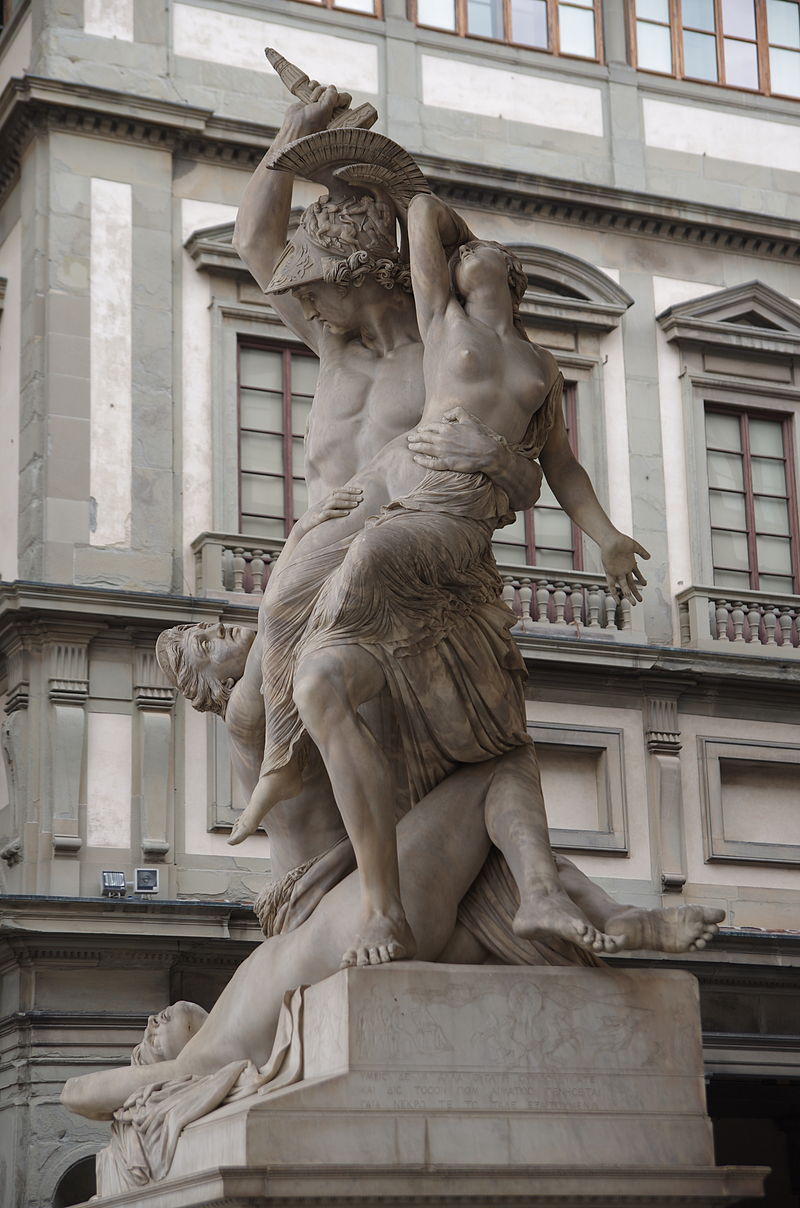
Pio Fedi, The Rape of Polyxena, ca. 1860
Student Course Surveys: https://scs.arizona.edu/content/5

Pio Fedi, The Rape of Polyxena, ca. 1860
Student Course Surveys: https://scs.arizona.edu/content/5
GROUP PROJECTS (Tuesday, May 3): 15 mins. presentation on a post-classical reception (plays, films, music, visual arts, etc.) of one of these tragic (Senecan) or "tragicomic" (Plautine) plays: Amphitryon, Captivi, Rudens, Thyestes, Phaedra, Medea, Trojan Women
examples:
direct receptions (explicit adaptations)
Thyestes: a revenge tragedy such as Shakespeare's Titus Andronicus or Hamlet
Amphitryon: Jean Giraudoux's Amphitryon 38
Phaedra: Sarah Kane's Phaedra's Love, Jules Dassin's Phaedra
Rudens: Shakespeare's The Tempest
Medea: films, e.g. Pasolini's Medea, A Dream of Passion; fantasy novel, Blade of Fire
indirect receptions (common themes, ideas, characters)
Medea: love & vengeance, monstrous anger, metatheater (awareness of self-performance), contradictions of "civilization"
Trojan Women: the captured city, trauma of war's non-combatants, vengeance vs. mercy, toxic masculinity
Thyestes: cannibalizing family dysfunction & fragmentation, autocracy, human bestiality, horror as spectacle
Phaedra: familial dysfunction and miscommunication
Captivi, Rudens: terrifying loss of identity
Amphitryon: ontologically confusing Doppelgänger
Seneca, Trojan Women (cont.)


Sacrifice of Polyxena, Tyrrhenian amphora, 570-550 BCE
